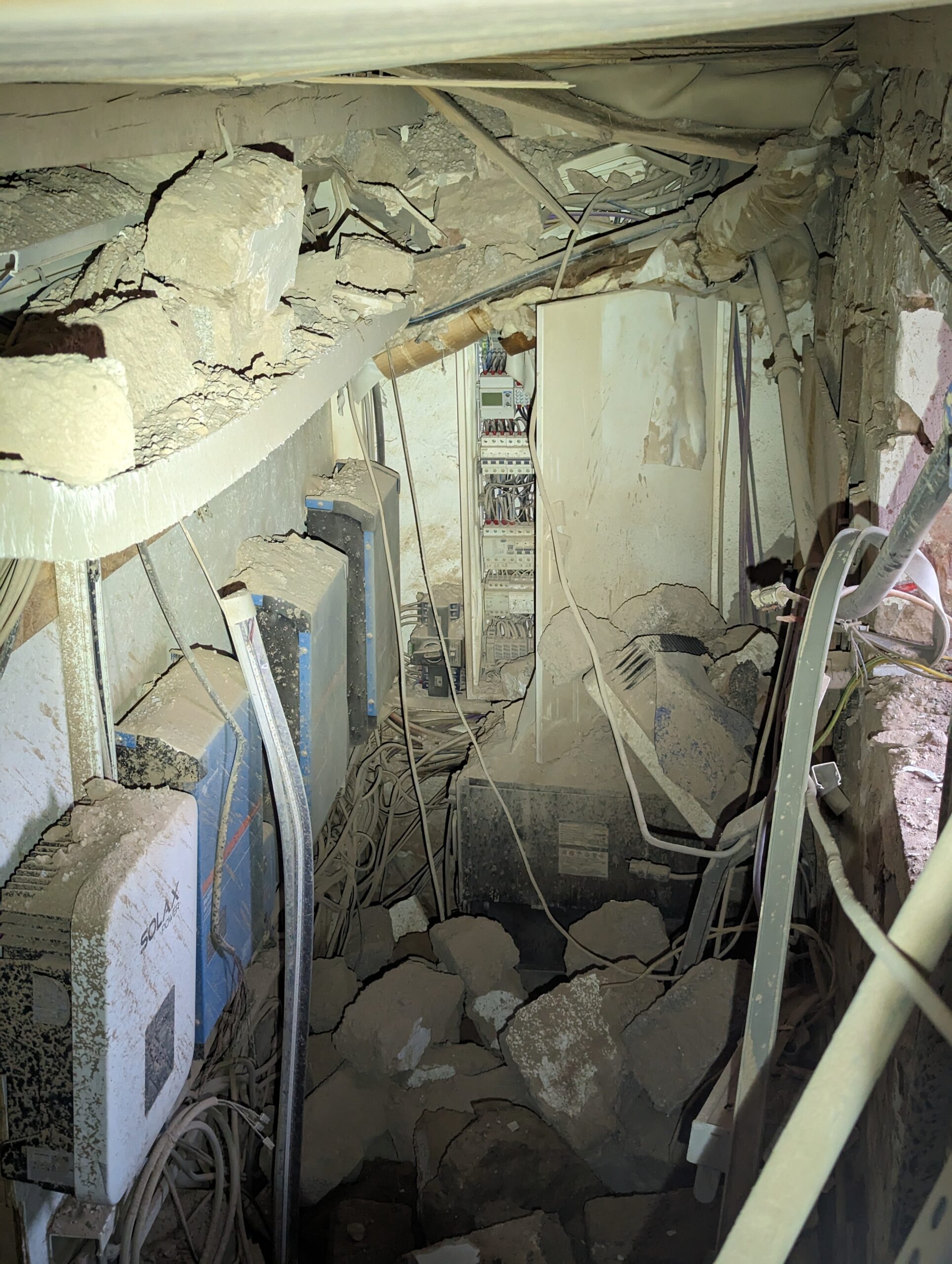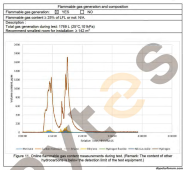You are using an out of date browser. It may not display this or other websites correctly.
You should upgrade or use an alternative browser.
You should upgrade or use an alternative browser.
Wow, basen rack.mounts batteries destroy a home in germany
- Thread starter houseofancients
- Start date
How many thousand hours have been logged on this technology by properly built batteries by members of this forum without an issue?
Contrast that with the safety history of the four wheeled contraptions that on on the roads every day.
Even IF something possibly happened we don’t know the build history.
There is often a wide gap between theoretically possible and likely.
Contrast that with the safety history of the four wheeled contraptions that on on the roads every day.
Even IF something possibly happened we don’t know the build history.
There is often a wide gap between theoretically possible and likely.
Zapper77
Renaissance Man
- Joined
- Jul 23, 2022
- Messages
- 2,341
Not my home. Way to many air leaks. The pressure would never build up high enough. ??A gallon of gas, absolutely would destroy a house.
Bluedog225
Texas
- Joined
- Nov 18, 2019
- Messages
- 3,012
Everyone who understands lead acid vents the compartment because they generate hydrogen in large enough quantities to pose an explosion hazard. It’s all codified and settled. They even vent AGM. Right….? Because in failure mode, AGM vents hydrogen (and maybe some acid).
If LiFePO4 vents hydrogen in failure mode, the compartment ought to be vented.
Just because we don’t, doesn’t mean anything. Sounds like treating it just like and AGM is correct.
Change my mind.
If LiFePO4 vents hydrogen in failure mode, the compartment ought to be vented.
Just because we don’t, doesn’t mean anything. Sounds like treating it just like and AGM is correct.
Change my mind.
Last edited:
hwy17
Anti-Solar Enthusiast
Whether or not he was literally on this forum, the equipment he was working with definitely makes him "one of us" so I don't see why we shouldn't be extremely interested in what happened. This could be a novel kind of risk that I haven't even really seen imagined up until today.How many thousand hours have been logged on this technology by properly built batteries by members of this forum without an issue?
hwy17
Anti-Solar Enthusiast
I agree. I thought it was funny every time I saw some Lifepo4 cell marketing material that pointed to the vent on the top of a cell and said something like "keeps all gases contained".... Yeah, normally, but the purpose of that piece is to do the opposite and keep them uncontained.Everyone who understands lead acid vents the compartment because they generate hydrogen in large enough quantities to pose an explosion hazard. It’s all codified and settled. They even vent AGM. Right….? Because in failure mode, AGM vents hydrogen (and maybe some acid).
If LiFePO4 vents hydrogen in failure mode, the compartment ought to be vented.
Just because we don’t doesn’t mean anything. Sounds like treating it just like and AGM is correct.
Change my mind.
OffGridForGood
Catch, make or grow everything you can.
Possible causes of a gas explosion in this location:
1. LFP ESS with BMS and Inverter controls
2. Natural gas home heating appliance with...with...with an igniter.
The only situations to cause LFP venting, is if both the Inverter and the BMS controls both failed and cells were exposed to high voltage leading to venting, OR external source of heating created the conditions for the cells to vent, or a high current flow caused the cells to overheat.
By contrast, the heating appliance has several failure modes possible as mentioned earlier in the tread.
Reminds me of a story:
My daughter (when she was ten) said to me one winter morning - "hey there are Zebra tracks in the snow in the back yard."
I asked her, "ok, I see some tracks, what makes you think this was from a Zebra?"
She said: "we learned all about Zebras at school last week, and those tracks look just like what we learned at school about zebras"
So I said, "Sure, the tracks look just like a zebra's, but what do you think is 'more likely' where we live, a Deer or a Zebra walked through our yard last night?"
I would like to see a fire marshalls' report on the incident.
1. LFP ESS with BMS and Inverter controls
2. Natural gas home heating appliance with...with...with an igniter.
The only situations to cause LFP venting, is if both the Inverter and the BMS controls both failed and cells were exposed to high voltage leading to venting, OR external source of heating created the conditions for the cells to vent, or a high current flow caused the cells to overheat.
By contrast, the heating appliance has several failure modes possible as mentioned earlier in the tread.
Reminds me of a story:
My daughter (when she was ten) said to me one winter morning - "hey there are Zebra tracks in the snow in the back yard."
I asked her, "ok, I see some tracks, what makes you think this was from a Zebra?"
She said: "we learned all about Zebras at school last week, and those tracks look just like what we learned at school about zebras"
So I said, "Sure, the tracks look just like a zebra's, but what do you think is 'more likely' where we live, a Deer or a Zebra walked through our yard last night?"
I would like to see a fire marshalls' report on the incident.
cs1234
Solar Wizard
- Joined
- May 9, 2022
- Messages
- 2,305
Did you tell her the truth about Santa Claus and the Easter Bunny also?!Reminds me of a story:
My daughter (when she was ten) said to me one winter morning - "hey there are Zebra tracks in the snow in the back yard."
I asked her, "ok, I see some tracks, what makes you think this was from a Zebra?"
She said: "we learned all about Zebras at school last week, and those tracks look just like what we learned at school about zebras"
So I said, "Sure, the tracks look just like a zebra's, but what do you think is 'more likely' where we live, a Deer or a Zebra walked through our yard last night?"
I would like to see a fire marshalls' report on the incident.
hwy17
Anti-Solar Enthusiast
Completely plausible.if both the Inverter and the BMS controls both failed and cells were exposed to high voltage leading to venting
In my region and others nearly every single house has a gas water heater and you don't hear about anybody's house blowing up. In fact when you do hear about a garage explosion it's much more common that it's another fuel source like a gas can and the water heater provided the ignition. 100+ years we've been refining gas appliances for safety.By contrast, the heating appliance has several failure modes possible
EricBarbour
meh
While you folks are talking about unrelated things and posting jokes, this story is spreading online.....it's all garbage coverage, but still, you just know someone will start waving this around as "PROOF" that LiFePO4 batteries are "deadly".
Different incident?

 news.metal.com
news.metal.com
And a bunch of "clickbait" aggregators have also picked it up, along with several bloggers on LinkedIn.
Have any of YOU seen plausible examples of an LiFePO4 battery "exploding" like a bomb? I haven't. This doesn't help.
Different incident?

All of a sudden! German national battery energy storage system explodes South Korean lithium giant as a supplier! | Shanghai Non ferrous Metals
[sudden! German national battery energy storage system explodes South Korean lithium giant as a supplier! According to foreign media, on March 3, the German fire department reported an explosion in an apartment building in southern Germany, which was caused by an explosion of a battery energy...
And a bunch of "clickbait" aggregators have also picked it up, along with several bloggers on LinkedIn.
Have any of YOU seen plausible examples of an LiFePO4 battery "exploding" like a bomb? I haven't. This doesn't help.
During the latter part of September, there were multiple instances of home photovoltaic storage systems catching fire. In total, pv magazine has learned about five similar incidents in Germany and Austria.
OffGridForGood
Catch, make or grow everything you can.
of course - she always knew these are just for funDid you tell her the truth about Santa Claus and the Easter Bunny also?!
OffGridForGood
Catch, make or grow everything you can.
one explosion in one country out of 500 million or so similar homes. pretty rare event.it's much more common that it's another fuel source like a gas can and the water heater provided the ignition. 100+ years we've been refining gas appliances for safety.
Nobodybusiness
Collecting the leftovers of the Great Sky Reactor.
That looks like a collapse to me.To me the battery case looks very much undamaged

https://www.photovoltaikforum.com/thread/214845-explosion-eines-30-kilowattstunden-batteriespeichers-zerstört-wohnhaus-in-wernge/?postID=3444596#post3444596
Batteries are still intact.
The wall is blown in.
Not seen to many implosions before especially from Batteries.
Moot point for me.
All mine are outside in a building 200 feet away.
Last edited:
hwy17
Anti-Solar Enthusiast
Well I am less interested in playing PR manager for LFP here and more interested in what we can learn from this. Even if only hypothetically.
I can raise my hand here as someone who currently has a server rack battery 3ft from a propane water heater and was planning to install more even closer. Some will say that was always a dumb idea, but honestly I never saw flammable gaseous build up given any discussion.
We apparently know that they can give off a lot of hydrogen quickly in a venting event, and I don't put it out of the realm of possibility that a vent couldn't happen to me. So this does change my own plans.
I can raise my hand here as someone who currently has a server rack battery 3ft from a propane water heater and was planning to install more even closer. Some will say that was always a dumb idea, but honestly I never saw flammable gaseous build up given any discussion.
We apparently know that they can give off a lot of hydrogen quickly in a venting event, and I don't put it out of the realm of possibility that a vent couldn't happen to me. So this does change my own plans.
Is that for a single 5kWh battery? 142m3 is garage-sized. That suggests that a small box with devices that can arc is a real hazard.As a point of data, this chart shows just what gasses were admitted by a lfp rack battery undergoing a simulated thermal runaway test for 9540A:
My marginally informed opinion in the matter is that if it was a gas boiler and an unventilated space then there was elevated risk for sure. I would not have expected this level of risk for an electric boiler, but it clearly exists.
Sarcasm noted, but LEL is just a function of gas concentration with an ignition source.Not my home. Way to many air leaks. The pressure would never build up high enough. ??
Brucey
Solar Wizard
Is this for a single 48V 100Ah rack style battery?As a point of data, this chart shows just what gasses were admitted by a lfp rack battery undergoing a simulated thermal runaway test for 9540A:
View attachment 175419
Seems to be saying minimum recommended room size is 142m3, which is around 5000 cubic feet? Maybe my math is off. 1769 liters of gas is a huge amount. So a 280Ah powerpro battery would potentially release 2.8 times that? I guess an outdoor power house wouldn't be a bad decision at all.

Brett V
Mad Scientist
Interesting but meaningless discussion. There has been NO proof this was a catastrophic explosion of the batteries. Lots of unsubstantiated conjecture based on an unverified claim from an unknown source. The supplied photograph shows no signs of positive pressure from within the room, no signs of fire, and no evidence of an explosion of any kind. If anything, it looks like a building collapse from above due to any number of sources such as an earthquake or structural failure.
OffGridForGood
Catch, make or grow everything you can.
The post title contains an assumed cause without any evidence provided.
Typical news tactic - plant the idea in the headline, provide no evidence at all to support that assumption in the article that follows. Most readers later only recall the title, and do not recall the lack of evidence.
Typical news tactic - plant the idea in the headline, provide no evidence at all to support that assumption in the article that follows. Most readers later only recall the title, and do not recall the lack of evidence.
OffGridForGood
Catch, make or grow everything you can.
Interesting story, a fire safety expert once told me: If we just discovered natural gas today, it would be impossible to get it passed for domestic use in N.America today.Completely plausible.
In my region and others nearly every single house has a gas water heater and you don't hear about anybody's house blowing up. In fact when you do hear about a garage explosion it's much more common that it's another fuel source like a gas can and the water heater provided the ignition. 100+ years we've been refining gas appliances for safety.
Similar threads
- Replies
- 33
- Views
- 2K
- Replies
- 25
- Views
- 2K
- Replies
- 37
- Views
- 2K
- Replies
- 17
- Views
- 995



